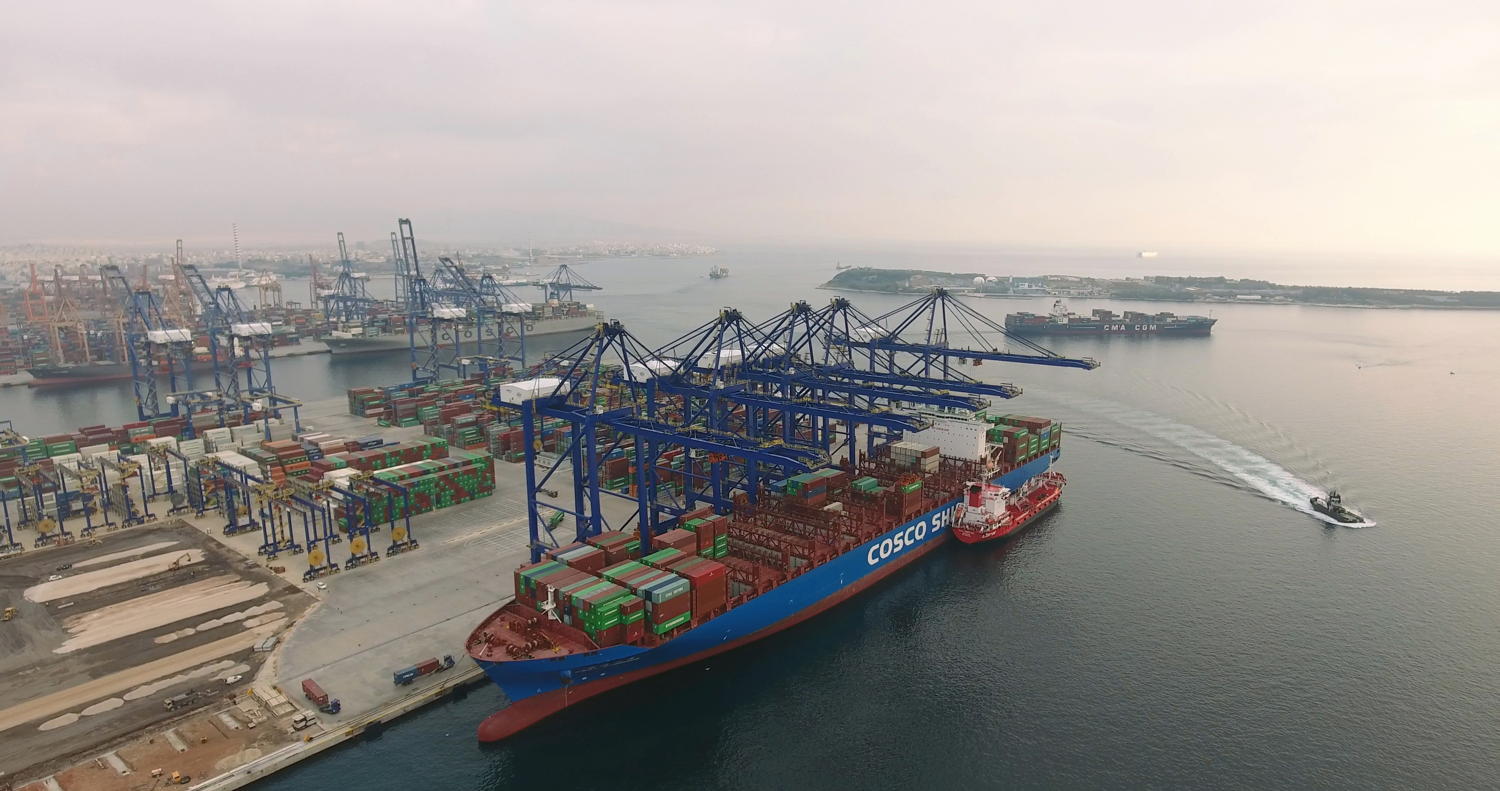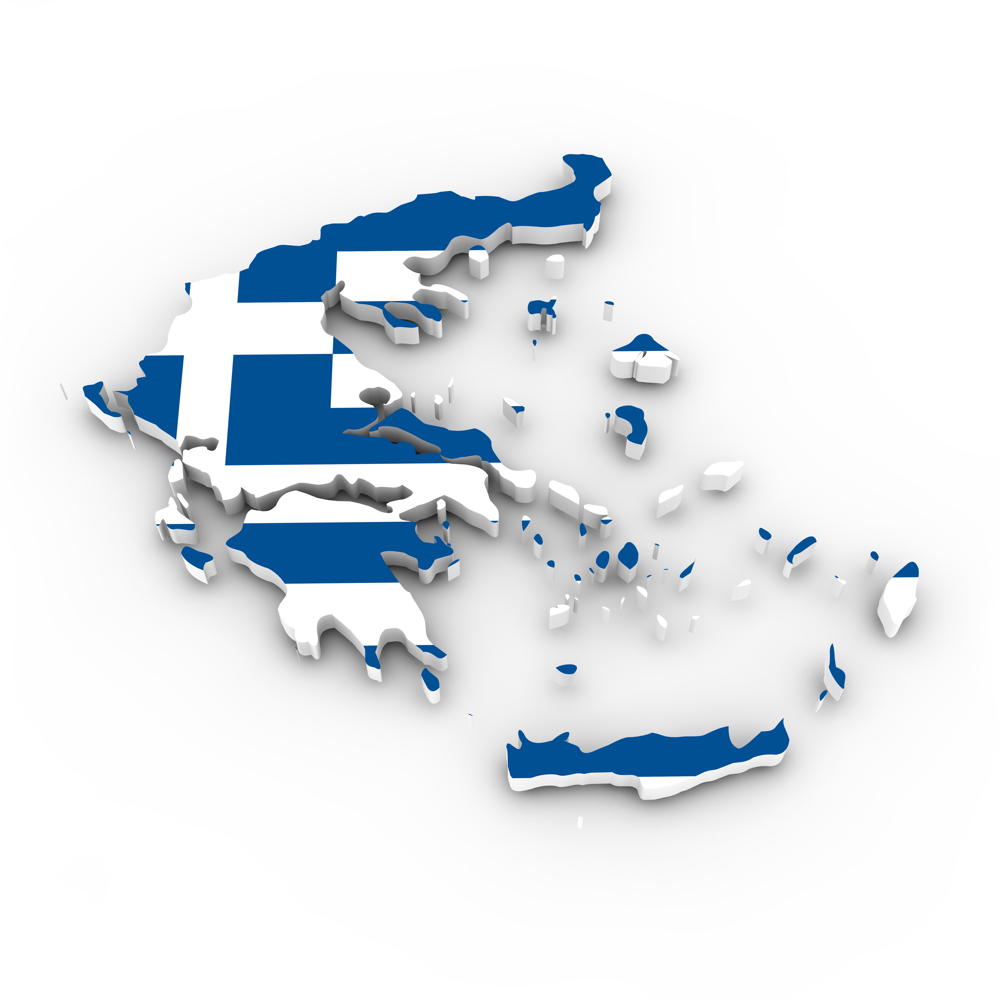While Cosco’s subsidiary Piraeus Container Terminal has finally taken over operations
at the third container facility at Greece’s main port, throughput figures and profits grow –
as do concerns about the growing influence from the Far East
It was April 1st, when Piraeus Container Terminal (PCT), a wholly owned subsidiary of Cosco Shipping Ports, has taken over[ds_preview] project management services for the business operation of Pier I container terminal from Piraeus Port Authority (PPA). The port authority’s objectives behind the transaction are the overall utilization of the terminal resources, the increase of the total throughput of Pier I and the the improvement of the quality of services.
The fee of PCT has been a fixed annual service fee of 67.000€ (plus VAT), plus an additional management fee of 4€ per move, for any moves that exceed the throughput targets. For the period from the signing of the contract until January 31, 2021 the agreed target will be 650,000TEU, with PCT guaranteeing throughput for this period of not less than 500,000TEU. The term of the contract will be three years, with the possibility of an extension.
After criticism from labour unions, PPA emphasized that it expects the benefits from this agreement to be significant »as it ensures the increase of cargo that will be handled at the Pier I by more than 30% annually compared to 2019«. »It is easily understandable that this percentage is particularly high, bearing in mind the crisis in the trade caused by Covid-19 as well as the decline in the cruise sector, coastal shipping and RoRo«, PPA added.
Largely a state affair
The concession for the Piraeus port lasts to 2052. Cosco bought 51% of PPA in 2016 for 280.5mill. € and will increase its shareholding by fulfilling certain requirements. After the successful completion of required investments, Cosco will pay the remaining 88mill. € to the Greek state fund HRADF and increases its share in the port authority to 67%. The Chinese company has to make mandatory investments of 350mill. € within the next ten years and generate an additional revenue of 410mill. €.
The Chinese have big plans for the Mediterranean port, especially when it comes to the cargo sector. Cosco plans to increase the annual container handling capacity by 2.8mill. TEU to 10mill. TEU.
In fact, the port of Piraeus has grown rapidly since the takeover and exceeded an annual throughput volume of 5mill. TEU in 2019. »Supported by increased calls from the Ocean Alliance and THE Alliance, throughput of Piraeus Terminal increased by 17.0% to 5,158,626TEU in 2019. With two new berths added in January 2019 in response to increasing regional demand,« Cosco said in its 2019-results presentation.
Greek authorities have largely approved Cosco’s investment plan for the port. However, the expansion plans for the container terminal had been withdrawn by PPA, allegedly due to protests from neighbouring communities. PPA said that the plans where not yet ready for implementation. Cosco originally intended to develop a fourth container terminal but has now proposed better integration of Terminals 2 and 3 (already 100% Cosco-owned) and now Terminal 1.
For the time being, the port authority wants to invest 611.8mill. €. The green light has so far been given for the construction of a cruise terminal, the expansion of hotels and warehouse complexes and the purchase of new buses. There are also plans for the expansion of the container terminal, the extension of the RoRo terminal and new plans for a shopping centre for cruise passengers.
The port project is largely a state affair. Both governments want to push ahead with the expansion of the Mediterranean hub. While Greece recovers from the blow of the 2008 financial crisis it needs the money to start flowing into the country. For China, the European port is a strategic opportunity within its global Belt-and-Road-initiative. President Xi Jinping wants to strengthen Piraeus’ role as »China’s fast sea-land access via Greece to Europe«. The Greek government hopes for Chinese investments of up to 1 bn €. Last November, the Chinese head of state came to Greece personally to help overcome the remaining hurdles in the terminal expansion process.
Greek elections in 2019 have brought the Nia Democratia party back into power that declared the shipping and maritime sector to be an important pillar for rebuilding the economy’s strength. Moving ahead with the upgrading of Piraeus port is a priority of a recent draft bill covering shipping legislation, ports, marine tourism, island policy and safety at sea.
»Year of change for
Greek shipping«
Ioannis Plakiotakis
Minister for Shipping and Island Policy
Shipping and Island Policy Minister, Ioannis Plakiotakis, wants 2020 to be the »year of change for Greek shipping«. At a recent conference in Athens, he spoke about a »comprehensive plan« he had already drawn up with no investment opportunities to be missed. Part of this is to capitalise on the »great investor interest« being shown in the country’s ports, ten of which Greek plans to privatise. The tendering process for the privatisation of the ports of Alexandroupolis, Heraklion, Crete and Igoumenitsa is about to start.
While the growing Chines influence in Greece – and Europe – is subject to reservations not only within the Greek port workers community, the financial figures of the Piraeus Port seem to prove the government’s move right. PPA’s 2019 revenues amounted to 149.2mill. € compared to 132.9mill. € in the period of 2018, showing an increase of 12.3%. »
This change is mainly due to the revenues increase from the concession fee by 17.1% or approximately by 9.6mill. €,« PPA stated. A further increase in revenue was recorded in the Cruise terminal by 18.3% and in the ship repair sector by 25.3%.
The profit before tax amounted to 47.6mill. €, also up 12.5% on the 2018 figures, while net profit even increased by 27% to 35.4mill. €. PPA will pay 5.4mill. € concession fee to the Greek State for the year 2019 compared to 4.8mill. € in 2018.
The Chairman of PPA, Yu Zenggang, stated: »The year 2019 was one more successful year for the management and all staff of PPA. The year 2020, after the relevant approvals, we can accelerate the progress of implementation of the Master Plan. We will try our best to bring further contributions to the shareholders, local society and all relevant stakeholders.«
NATO warns EU partners
Meanwhile, the Coronavirus pandemic raises concerns that the Chinese influence in Europe could grow. As news channel DW reported, NATO Secretary-General Jens Stoltenberg said at a virtual meeting of defense ministers that geopolitical effects of the pandemic could be significant as some allies could be more »vulnerable for situations where critical infrastructure can be sold out« after the crisis.
Netherlands-based International relations research institute Clingendael detailed the growing Chinese influence in European port and logistics infrastructure. In the European Union, Cosco owns minority stakes in container terminals in Antwerp, Las Palmas and Rotterdam and holds controlling stakes in container terminals in Piraeus, Valencia, Bilbao and Zeebrugge. In Spain, the conglomerate has a 51% stake in, and managerial control of, Cosco Shipping Ports (Spain) Terminals, which owns and operates the largest terminals in Valencia and Bilbao. In Zeebrugge, the group owns 90% of the only terminal operator.
According to the Clingendael report, Cosco’s involvement at Piraeus is the only instance in the European Union where it has a controlling stake in an entire port rather than in a container terminal that constitutes only part of the port. »Moreover, Piraeus is Greece’s main seaport, while the Greek economy is small relative to many Western European economies. In other words, if Chinese port investment has the potential to deliver greater political influence for China anywhere in the EU, Greece would be the most likely candidate,« it is said.
The Clingendael paper cites various Western think tanks, media and governments that have pointed at Cosco’s investments in Piraeus »as a tool for Chinese political interference in the European Union«, for instance by damaging unity among EU member states especially on European China policy.
Cosco is also increasingly focused on developing the port from a major transhipment hub »into a significant entry/exit point for overland trade between Piraeus and Central Europe«, the report says. The so-called China–Europe Land–Sea Express Route (LSER) is said to have a delivery time about seven days shorter compared to traditional shipping routes to European hubs. By connecting its shipping routes with China-Europe Railway Express, Cosco aims to develop itself into a one-stop service provider »linking the Silk Road Economics Belt and the 21st Century Maritime Silk Road«. The Clingendal research suggests that the ambition is to »establish the LSER as a north-south transport corridor from Piraeus up to Hamburg via the Balkans, Hungary, Austria, the Czech Republic, Poland and Germany«.



















